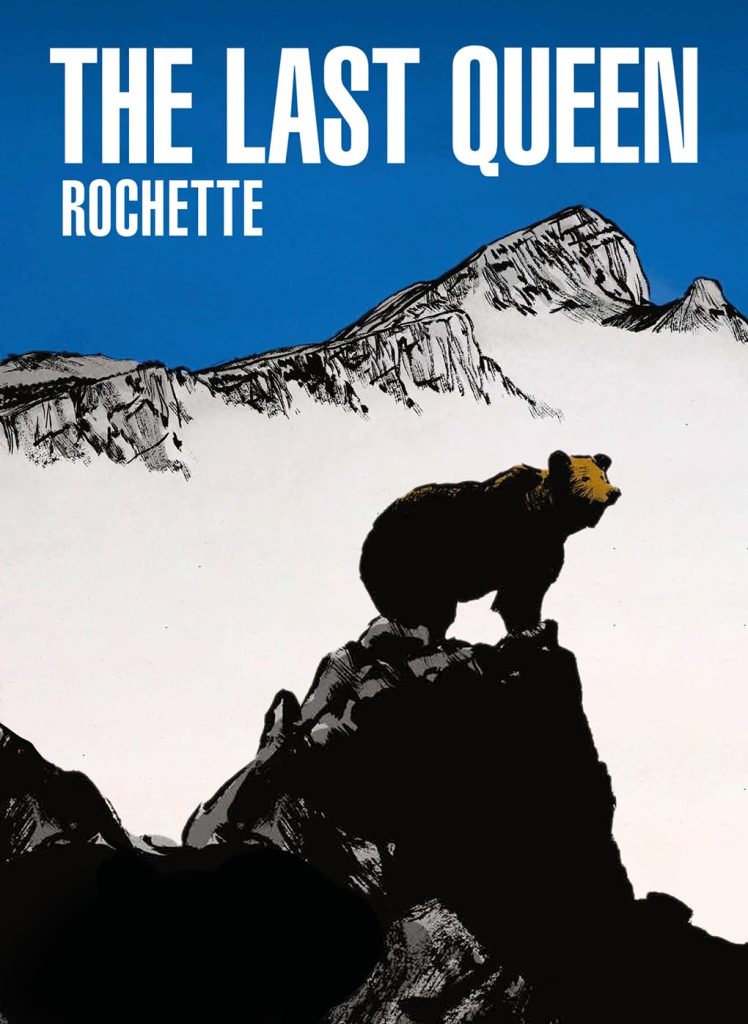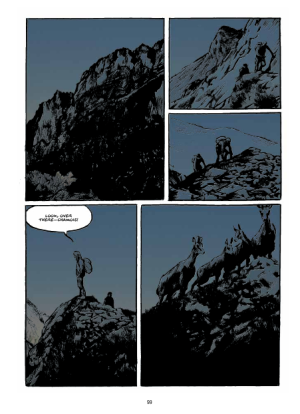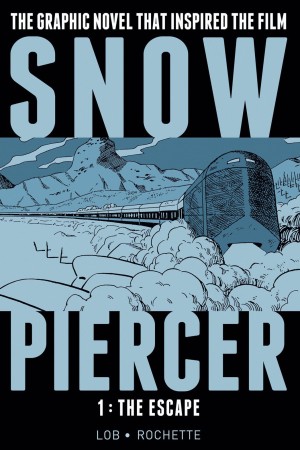Review by Frank Plowright
It takes some while for it to drop into place exactly what The Last Queen concerns, as Jean-Marc Rochette jumps about through time looking at the same French mountainous area over different eras, extending as far back as pre-history, but eventually coming to rest in the 20th century. A community of mountain bears feature, shown before the arrival of humanity and then through the centuries exploring their diminishing fortunes.
The 20th century focus is Édouard Roux, seen as a youngster in 1898 being bullied, partly because he’s the son of an unmarried mother, and partly because he feels a connection with the area’s wild bears. Rochette punctuates jumps forward through Roux’s life with passages in the past showing the area as untamed and forbidding, the harsh place generating harsh lives. Mountainous locations are generally drawn to reflect the beauty of nature, yet there was no romanticising in Rochette’s Altitude, centred on his lifelong love of mountaineering. This is a wild and rugged presentation, with dark colours instituting foreboding and danger as Rochette dulls the landscape, also frequently seen at night.
Roux sustains horrific facial injuries during World War I, but a pioneering sculptor restores a shadow of normal life and introduces him to the Parisian art world. There’s the puzzling attribution of Marcel Duchamp’s famous toilet installation to his brother. It’s an unlikely error so is it meant to indicate a distancing from our reality? Rochette takes that approach by mythologising bears, and what might otherwise be seen as an improbable romantic contrivance would then fit a pattern. Furthermore, in the context of what opens up from that point it’s a worthwhile departure as a lifetime of knowledge and discovery tumbles out expressively in The Last Queen’s most joyful sequence. For a brief time, all is well with Roux’s world.
Although set in the past, Rochette encompasses themes very relevant today, most prominently a callous attitude to nature, but also blaming people for their own poverty, societal snobbery, and exploitation of artists. The depressing catalogue underlines little change in a century, as Rochette emphasises the existential importance of nature and art. He opens The Last Queen with a scene hanging suspense over the entire story, meaning as Roux’s life progresses an inevitability is presented, and the question becomes not if, but who? Rochette surprises with the answer.
It raises another question, though, one Rochette has been heading toward from the start. The Last Queen refers to a myth about the dark times coming when the region’s last bear dies, yet also pre-empts the obvious comparison by the myth concerning a female bear. Has Roux eventually saved his community despite being cast as a villain? It’s a fine, thoughtful ending to a meditation on the balance between man and nature.





